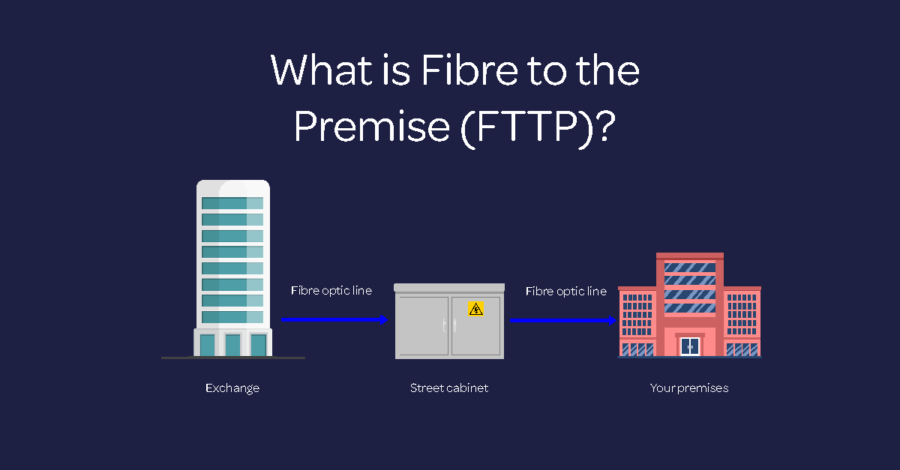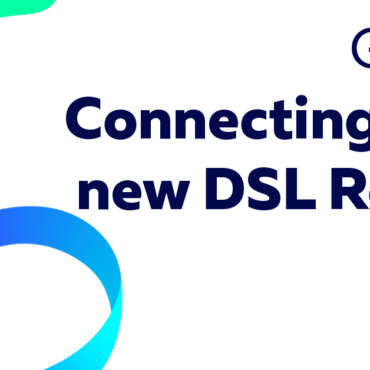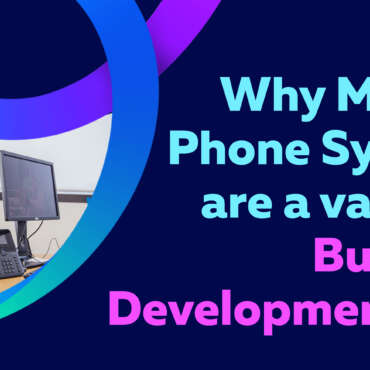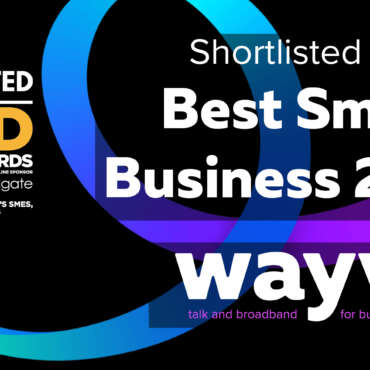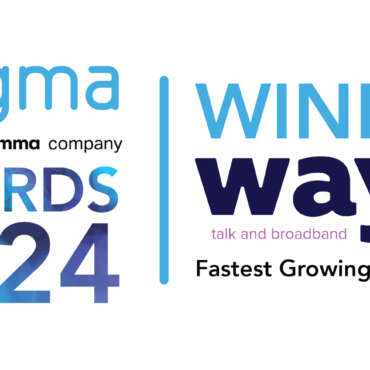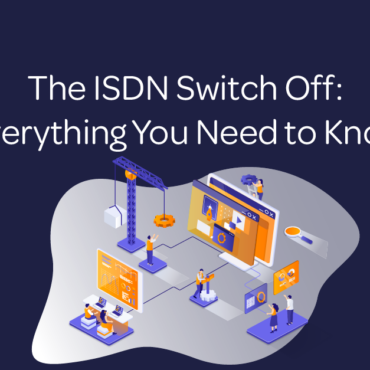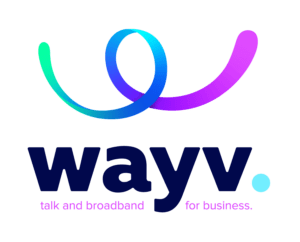FTTP stands for Fibre to the Premise, although it is also known as FTTH (Fibre to the Home).
Similarly to Fibre to the Cabinet (FTTC), the fibre optic line runs from the telephone exchange into the street cabinet. However, from here, there is a fibre optic line that connects directly to your premises instead of a copper line, making it “fibre to the premise”.
It can offer speeds of up to 1,000Mbps – this is around 30 times faster than standard fibre (FTTC)!
These fibre optic cables will be installed along the same route used by existing telephone cables. Although it is readily available for most businesses, don’t get too disheartened if this is not yet available in your area yet; there is a target to reach 85% of the UK by December 2026.
Advantages
- Very fast speeds
- Upload speeds can be as high as download speeds
- Affordable
- Long-term durability
Disadvantages
- Can be a long implementation period
- Requires installation in most areas
- Cost of installation
FTTP and FTTC – what’s the difference?
The fibre optic line runs from the telephone exchange to the street cabinet. This is where FTTC and FTTP differ, as FTTC connects to the premises through a copper line, and FTTC connects to the premises through a fibre optic line.
Although FTTP is faster than FTTC, there is approximately 60% availability in the UK, compared to a huge 96% with FTTC. Surprisingly, there isn’t a huge price difference between the two, but there will be a cost if new infrastructure is needed to be installed to give you an FTTP connection.
FTTP might be for you if:
- You regularly make video calls
- There are four or more active internet users
- You download and upload large files
FTTC might be for you if:
- You are on a tight budget
- You won’t be using multiple high-quality services at a time
- You are a micro business
- There isn’t a persistent reliance on the internet
Our Knowledge Hub For SME Insights
Guide: Connecting your new DSL Router
Instructions for connecting your new DSL router
Navigating the Big Switch Off for your business
If you’re one of the estimated 75% of small to medium businesses still relying on traditional phone lines, read on to find out how to navigate the switchover.
No longer a utility – Why business phone systems are adding more value than ever
Phone systems now integrate with other business systems as standard, enabling a more streamlined approach to managing business communications.
Wayv Shortlisted in unLTD Business Awards 2024
Following on from our shortlisting in the Barnsley and Rotherham Chamber of Commerce’s Celebration of Business Awards, we’re…
Wayv Shortlisted in Chamber of Commerce Awards 2024
“We’re proud to be shortlisted in these awards alongside some fantastic local businesses. Our continued growth is testament…
Wayv Certified Carbon Neutral for Second Year
Wayv are delighted to have been certified carbon neutral by Carbon Neutral Britain for the second year running.
Wayv Named Fastest Growing Partner 2024
“An incredible achievement after what has been an incredible year for Wayv. Well done to our amazing team,…
The ISDN Switch Off: Everything You Need to Know
ISDN stands for Integrated Services Digital Network. It is a set of communication standards for transmitting digital data…



